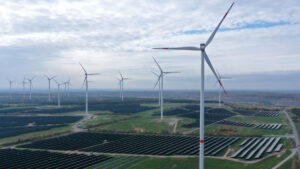Apollo Minerals gets three more years at Kroussou zinc-lead project after Gabon grants licence renewal

Pic: Getty
Zinc-lead explorer Apollo Minerals has received a big tick of approval from the Gabon Government after its flagship Kroussou project license was renewed for three more years.
The rights to explore the Kroussou lease until November 2024, gives Apollo (ASX:AON) and its shareholders rock solid certainty ahead of a major exploration push in 2022.
1,000 days x 1000 km2 of licence
Gabon’s renewal of Apollo’s ‘permis de recherche manière,’ covers the entire 986.5km2 of Kroussou and was signed off by Minister of Oil, Gas, Hydrocarbons and Mines, Vincent de Paul Massassa.
“Formal confirmation of the successful renewal of the Kroussou Exploration Licence is an important step for the Company as we advance the Kroussou Project,” Apollo executive director Neil Inwood said.
“The three-year approval represents an endorsement from the Gabon government and provides certainty of tenure within the robust local mining approvals process.”
2022 looms as a key year for Apollo
A comprehensive exploration program will include geophysical surveys, further drilling campaigns and metallurgical test work.
But it will also see the start of technical studies to demonstrate Kroussou’s commercial potential.
Results from 46 holes completed at Dikaki and Niamabimbou are expected to be reported during the March Quarter, along with results from recent on-ground exploration.
Apollo raised $7.2 million from investors last month to back its drilling at Kroussou, where it has made discoveries of shallow and thick zinc-lead mineralisation at both Dikaki and Niamabimbou.
High grade zinc and lead has been discovered just metres below the surface at each since Apollo began drilling this year, with another 16 prospects still to test along Kroussou’s extensive 80km strike length
A taste of the exceptional results at Dikaki:
- 32m at 3.1% Zn+Pb from 4m
- including 13.5m at 5.3% Zn+Pb from 12.8m
- 40m at 2.2% Zn+Pb from 3.2m,
- including 12m at 4.0% Zn+Pb from 17m
- and 4m at 3.1% Zn+Pb from 38m
At Niamabimbou, a 9km trend 16km south of Dikaki where mineralisation has started an average of just 7m below surface, results from the discovery included 19.9m at 1.6% Zn+Pb from 8m and 19.9m at 1.6% Zn+Pb from 13.5m, including 4.5m at 2.8% Zn+Pb from 27.4m.
This article was developed in collaboration with Apollo Minerals, a Stockhead advertiser at the time of publishing.
This article does not constitute financial product advice. You should consider obtaining independent advice before making any financial decisions.
Related Topics
UNLOCK INSIGHTS
Discover the untold stories of emerging ASX stocks.
Daily news and expert analysis, it's free to subscribe.
By proceeding, you confirm you understand that we handle personal information in accordance with our Privacy Policy.








